Analysis of Wollstonecraft's 'A Vindication of the Rights of Woman'
VerifiedAdded on 2020/03/04
|5
|1267
|102
Essay
AI Summary
This essay analyzes Mary Wollstonecraft's seminal work, 'A Vindication of the Rights of Woman,' focusing on her arguments regarding education, marriage, and societal expectations for women in the 18th century. Wollstonecraft critiques the prevailing social norms and political philosophies of her time, particularly those that limited women's access to education and intellectual development. She challenges the notion that women are inherently inferior to men, arguing instead that their perceived weaknesses are a result of their lack of education and societal constraints. The essay explores Wollstonecraft's views on the interplay between love, sex, marriage, and religion, highlighting her proto-feminist perspective and her acknowledgment of the role women play in perpetuating their own subjugation. It contrasts her views with modern feminist theories while emphasizing her call for women to develop their rationality and virtue to become better companions and contributors to society. Furthermore, the essay also explores her criticisms of contemporary women's customs, focusing on the issue of sensibility, and her disagreement with Rousseau's views on the subject. Finally, it highlights the lasting impact of Wollstonecraft's work on the feminist movement and her vision for a more equitable society.
1 out of 5
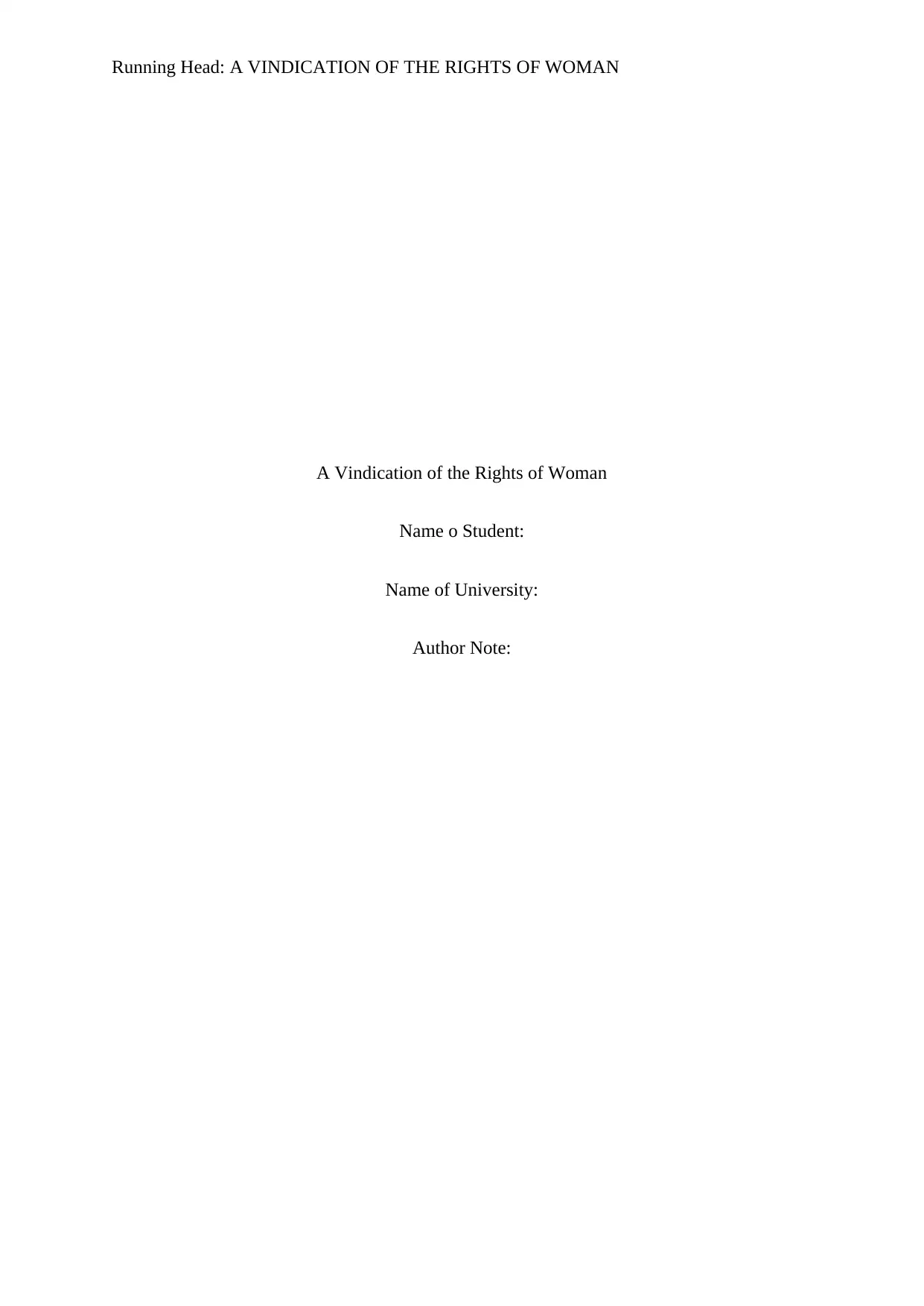
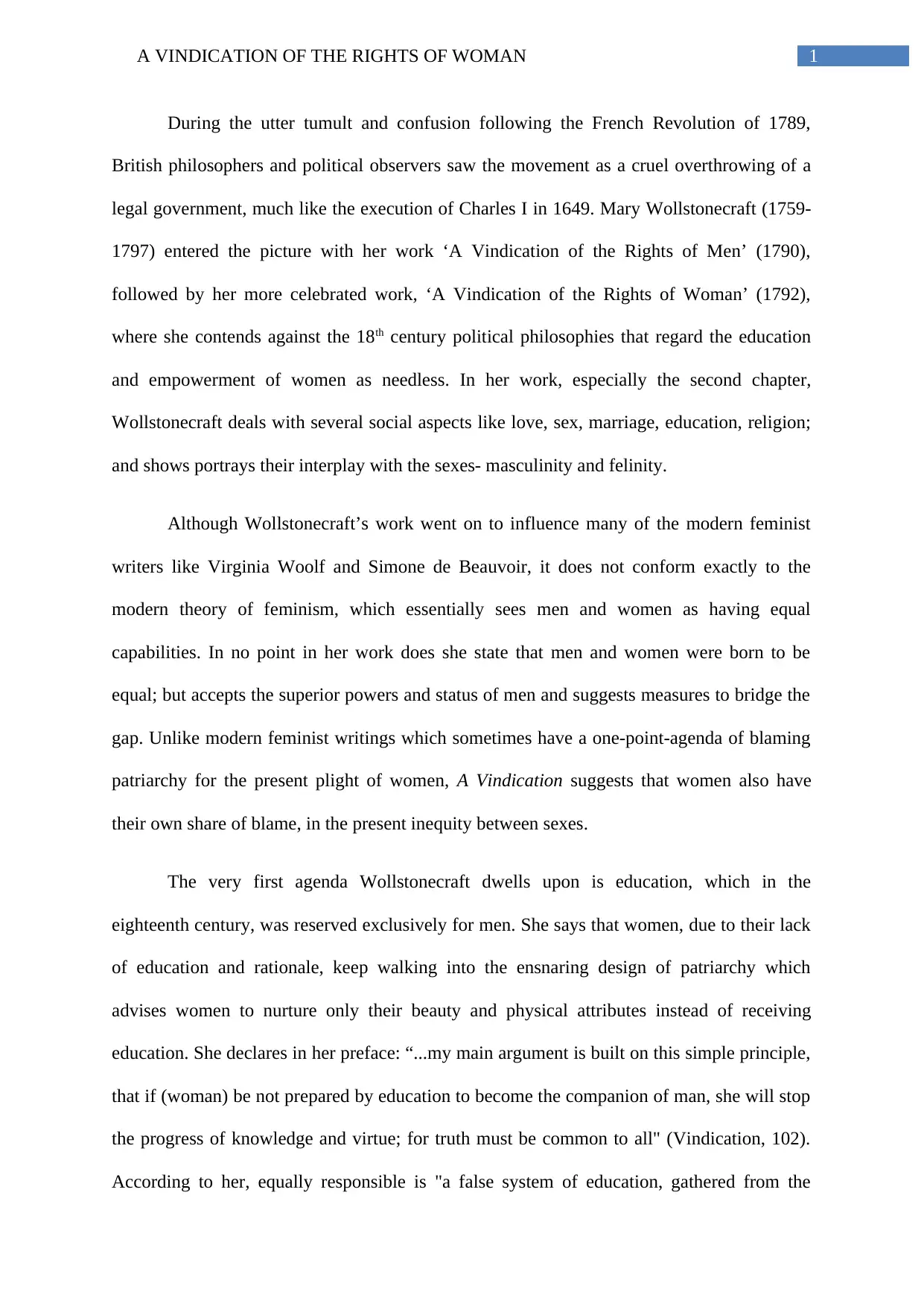
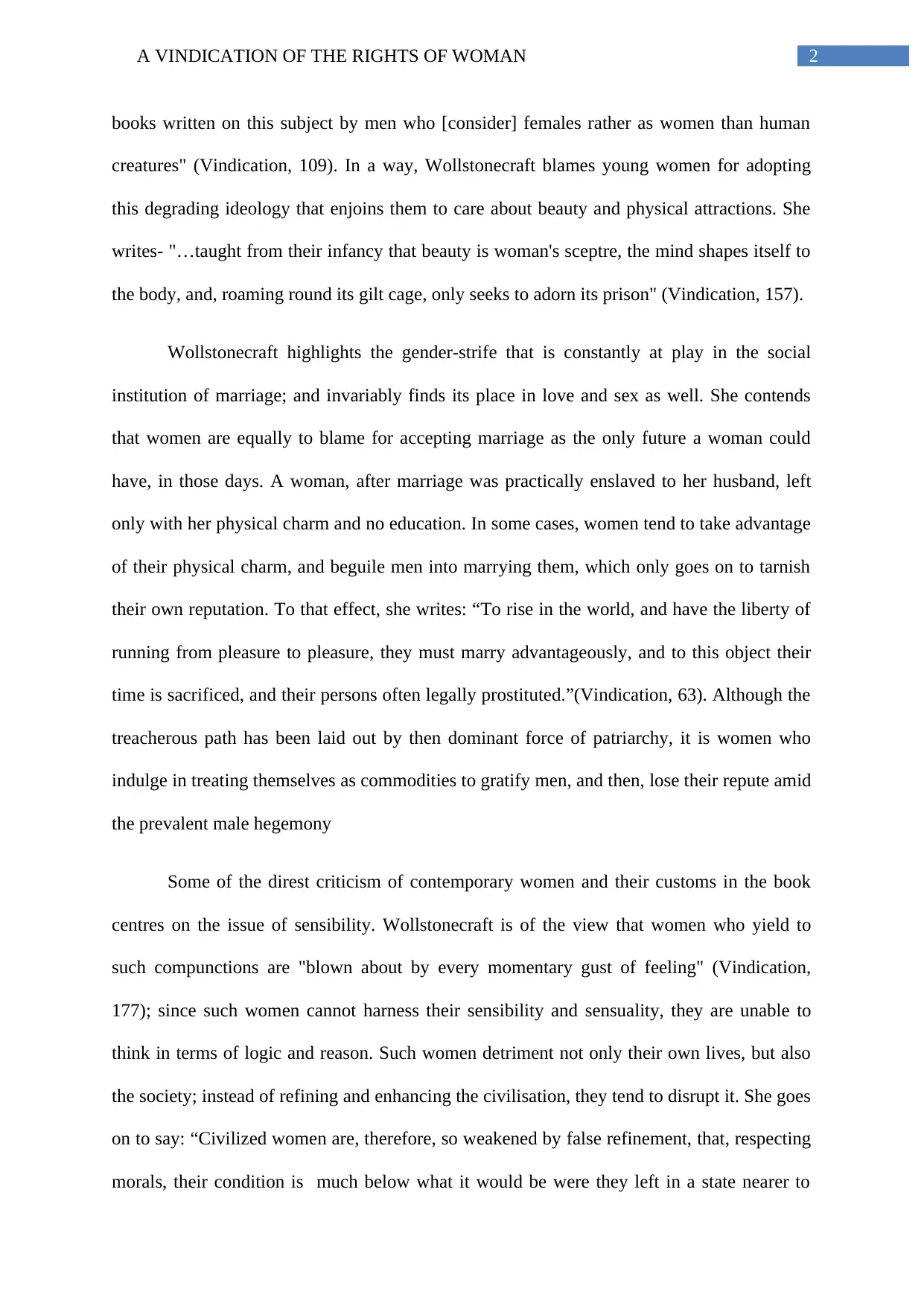

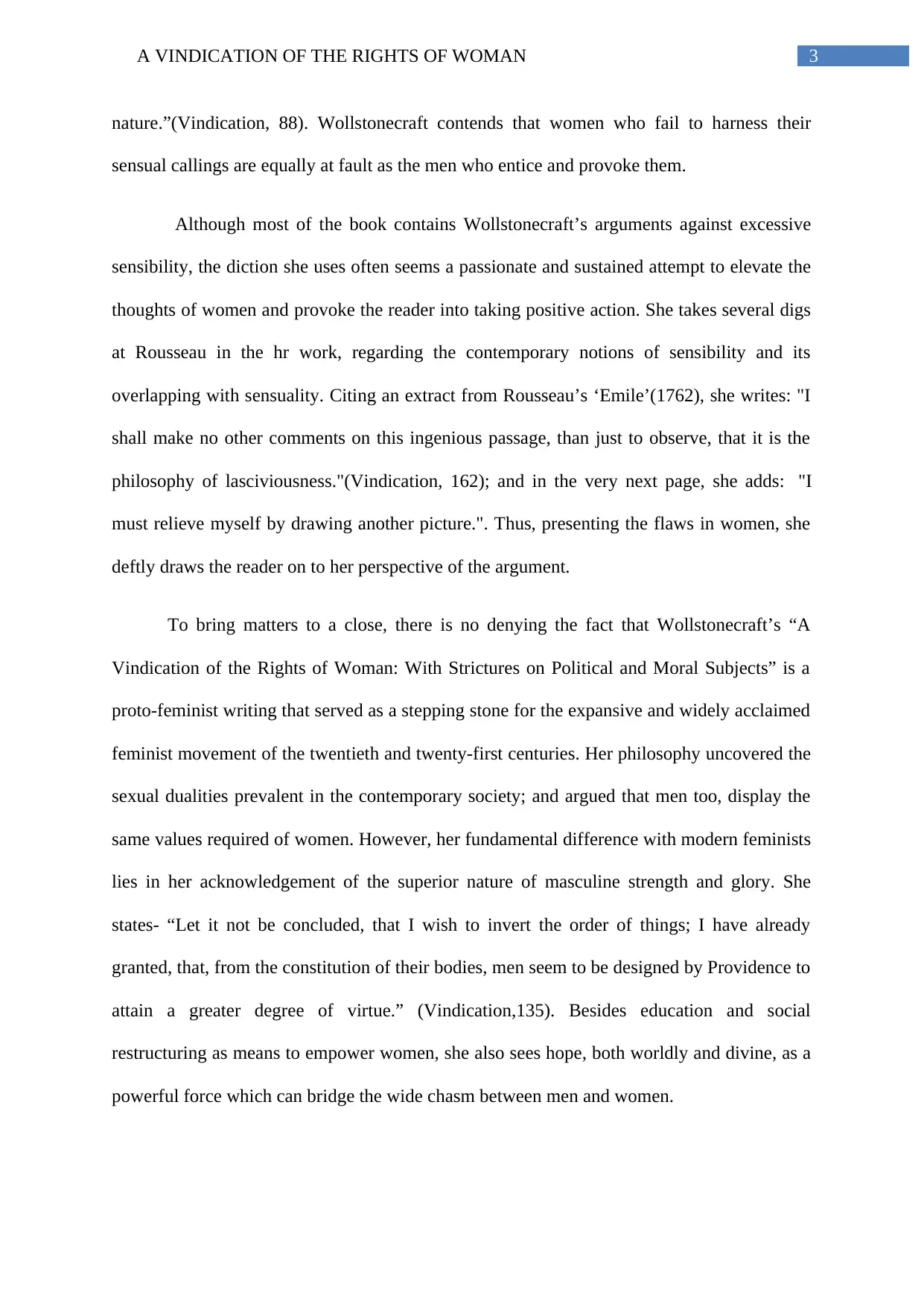
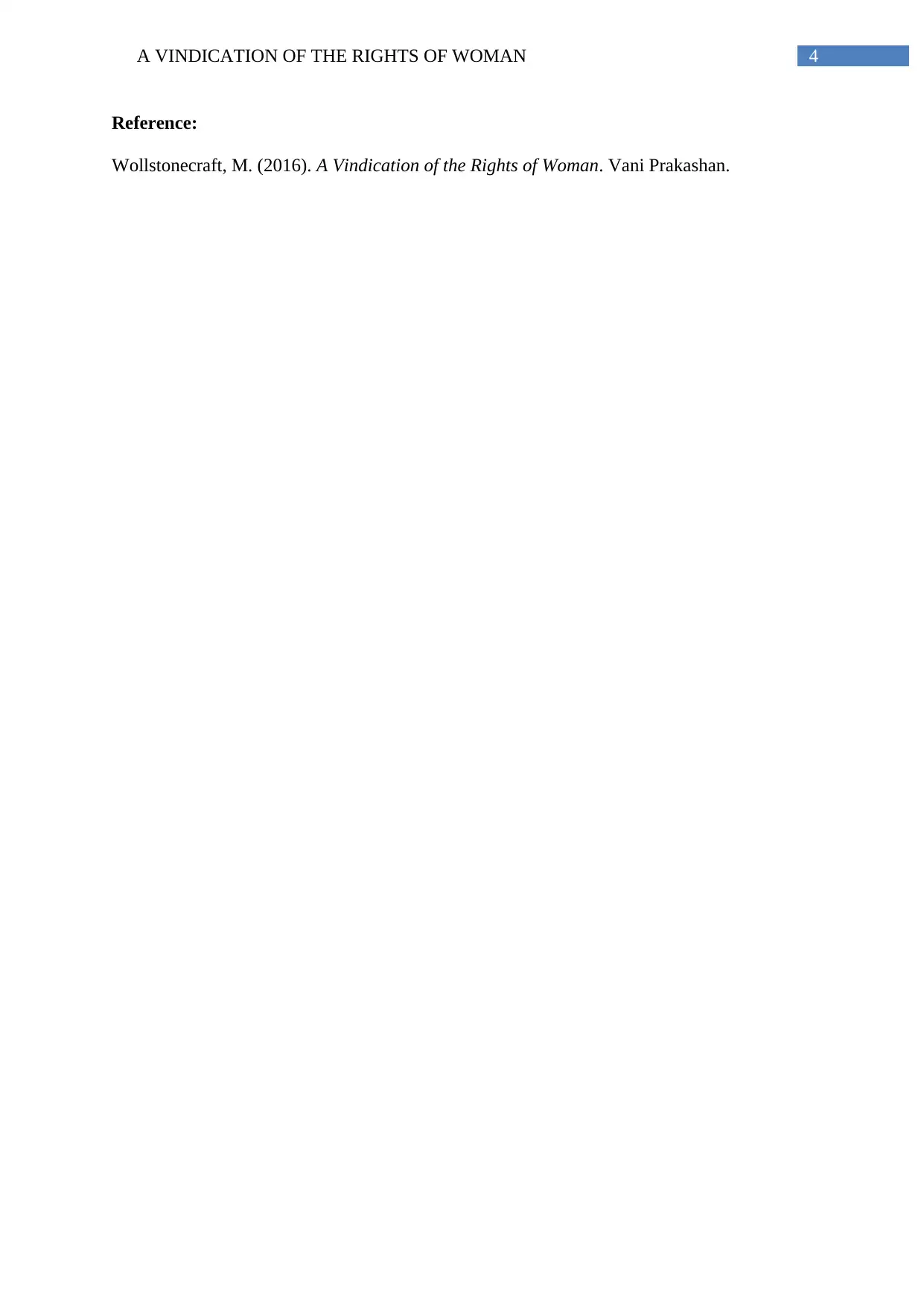






![[object Object]](/_next/static/media/star-bottom.7253800d.svg)